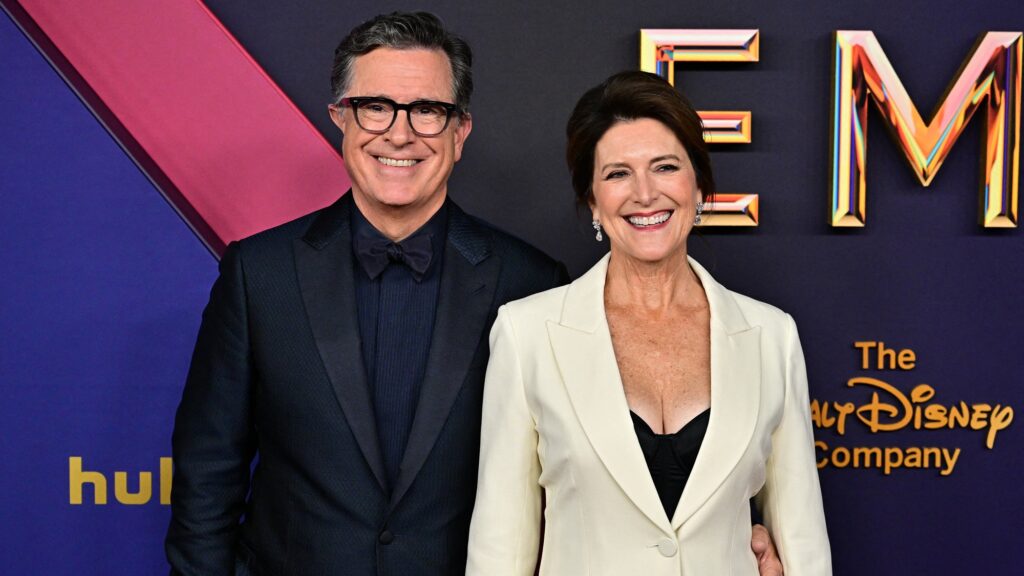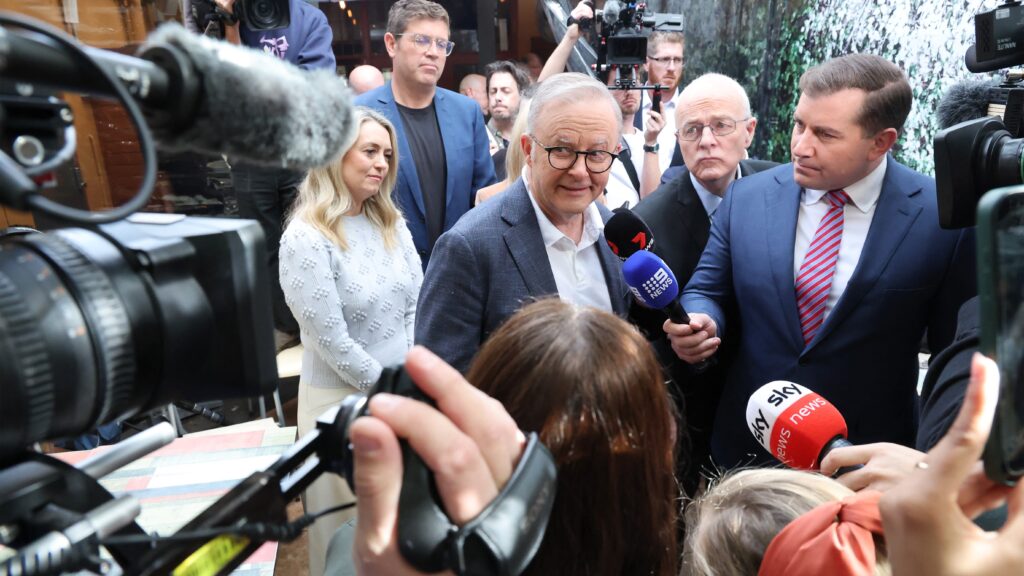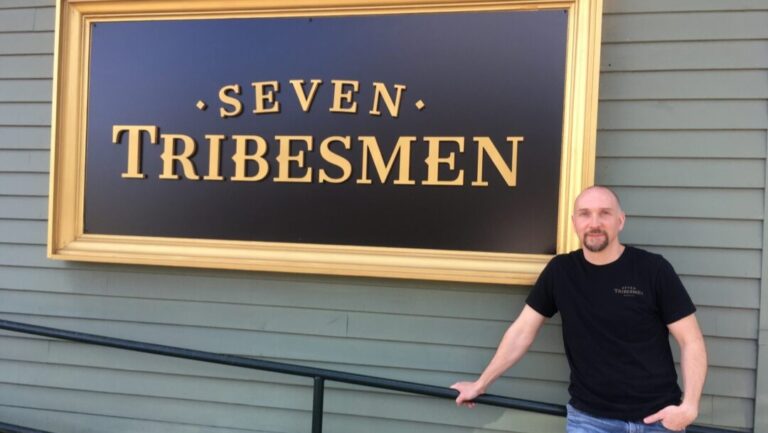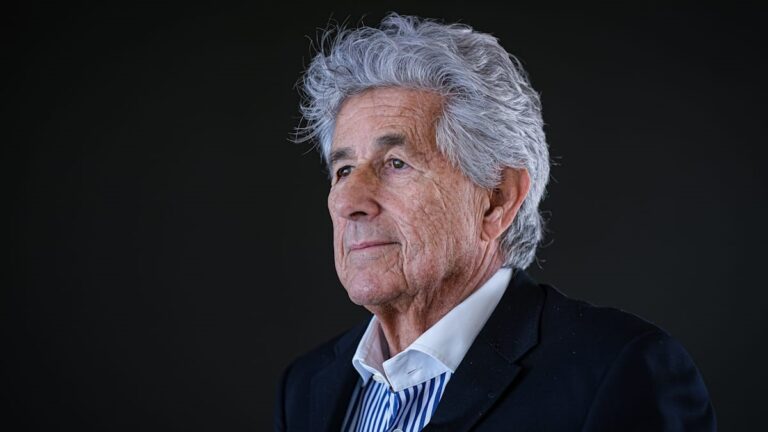Patrick Deneen is a professor of political science at the University of Notre Dame, a Catholic college in Notre Dame, Indiana. On 14 March, he took part in a panel discussion about the upcoming 2024 American presidential election at the Budapest campus of Mathias Cornvinus Collegium. As far as predictions go, he was only willing to share on stage that it will be a close election, without naming a winner. Professor Deneen also expressed his fear that because of the polarization, the election outcome might result in violence on the streets of America even. After his panel discussion, he sat down with Hungarian Conservative for an exclusive interview.
***
Donald Trump is currently up in the polls nationally in the aggregate of polls, which is unusual. He’s been underpolled very heavily in 2016 and 2020. What has changed? Even if he is technically up, big pollsters weren’t shy about putting out very inaccurate polls about him in the past, probably on purpose. In 2020, there were NBC and ABC News showing him behind by 10 points nationally, and 17 points in Wisconsin, for example, which he ended up losing by half a point. What has changed now, that even major pollsters, such as New York Times/Siena or NBC News are showing Donald Trump in the lead?
To some extent, the pollsters say that they have been developing more sophisticated ways to reach voters. So, that’s part of the problem, that Trump voters tend to be not college educated, and tend not to want to respond to polls. So they are trying to find those people and go to those people. That’s one explanation that’s given. One suspicion that I have is that when people were reached they were hesitant to say that they were supporting Donald Trump, that’s one reason why he was being underpolled. I think that hesitancy has declined, people are much more willing to say fairly boldly that they’re supporting Donald Trump.
And I would probably be remiss by not suggesting, as some people are, that some of these polls may intentionally somewhat overstate his support in part in the hopes of making him complacent.
So you think it is a possibility that showing more support than he actually has might be a strategy point of the establishment?
At this point, I think the establishment has been so willing to use any tactic at its availability that it’s not out of the realm of possibility.
But usually, people tend to support the winner, or who looks like is about to win. I think some research has been done to show that if you are leading the polls, you are more likely to draw funding, that’s for sure, but also additional support from the voters. Wouldn’t that backfire on them?
I think that the effect you are talking about is that people typically are more likely to say after an election that they had voted for the winner, so people tend to overstate their support for the winning candidate. But if that were the case then people who are behind the polls would always lose and that’s certainly not the case.
I think, in all likelihood, it’s not that these polls are being manipulated in any significant way, but I do think that pollsters are attempting to find ways to identify Trump supporters who they having a difficult time finding in the last two elections.

We had a big disappointment in the midterms. In some races that polls showed Republicans should have won, they lost. But nationally, actually, the aggregate of polling was very accurate. The RealClearPolitics aggregate showed Republicans up by 2.5 per cent on election day in the generic ballot in the US House election, and they ended up winning by 2.8 per cent. So in 2022, national polling was shown to be very accurate, and in 2020 and 2016, it actually underpolled Donald Trump and his support. Given all these circumstances, do you think we should be reasonably assured that Donald Trump will win, not just in the electoral vote, but also in the popular vote, which hasn’t been done by a Republican since 2004?
No, I wouldn’t be confident he is going to win the popular vote. Now, there is the complicating factor of a number of third-party candidates, or I should say, third, fourth, and fifth-party candidates. Not only Robert F. Kennedy Jr., who, at least as some polls indicate, is drawing equally from both candidates; but Cornel West is running, who will draw from Joe Biden’s support. We have a Green candidate running who will also draw from Joe Biden’s support. So, all of that in the aggregate, could, and I say could result in a popular vote win for Donald Trump, but it would be a plurality, not an outright majority. That seems to be more of a possibility.
I don’t think it’s highly likely that Donald Trump will win an outright majority, only because his electoral support comes from more rural voters, and rural voters are somewhat overrepresented in the electoral college.
Do you follow the primary turnout levels? Is it a good way to gauge and predict electoral results? Because it is favourable for Republicans, even now that both sides are uncontested, in Georgia, something like 580,000 people voted in the Republican primary, versus 300,000 people in the Democrat primary. Is this a good indicator?
Yeah, it can be helpful, but it’s not as helpful as it may once have been. And that’s in significant part because the energy and the amount of money that go into turnout operation in the general election are not present for the primary elections. So, you’re going to see,
it’s not necessarily energy, it’s just organization that makes the difference in the general election.
President Trump met with Prime Minister Orbán earlier this month. I talked to Dan Schneider, I don’t know if you are familiar with him, he is vice president of MRC Free Speech America, it’s a watchdog group, advocating for more free speech and less censorship of conservatives. What he told me was that what Viktor Orbán can provide for Trump is advice on how to message more effectively to the middle—not to the right-wing base, but to the middle. Do you agree with that?
I just generally don’t think that Donald Trump is as prone to take specific kinds of political advice from anyone. He runs more on instinct.
I really see the meeting between the two of them as just a kind of sign of solidarity between two very beleaguered figures right now, who are more or less despised by the same people.
It’s kind of a joint appearance that demonstrates that they are eager to work together and provide an alternative model to the dominant liberal approach to politics.
There was a big Supreme Court decision, 9–0, about states not being able to remove Donald Trump from the ballot. Which is interesting because Joe Biden has really shifted his campaign rhetoric to being about democratic values and being the safeguard for democracy. Do you think that even for the average independent voter, this is a little bit of a disconnect, that he is talking about democracy, and in the meantime, a Democrat Secretary of State in Maine, judges appointed by Democrats in other states, are illegally trying to remove a political opponent from the ballot? Do you think this is really bad optic or do you think it’s just lost in the news cycle?
Patrick Deneen on Twitter: “My final day of a week visiting, meeting, and lecturing in Vienna, Győr, and Budapest. As ever, an amazing experience and enlightening conversations made possible by @MCC_Budapest. Special thanks to @BalazsOrban_HU for his great work and marvelous new book. Köszönöm! pic.twitter.com/VcsmZgXiFf / Twitter”
My final day of a week visiting, meeting, and lecturing in Vienna, Győr, and Budapest. As ever, an amazing experience and enlightening conversations made possible by @MCC_Budapest. Special thanks to @BalazsOrban_HU for his great work and marvelous new book. Köszönöm! pic.twitter.com/VcsmZgXiFf
If you pay attention to the ways that many people in the progressive, liberal world talk about defending democracy, it often makes little sense if you think of democracy as abiding by and wanting to have elections, and election results being the determining aspect of the democratic process. What they really mean by democracy is liberalism. What they really mean is a set of liberal values.
So, what you notice, for example, is under the title of ‘defending democracy’ they include things like LGBTQ and trans encouragement and protections. So, in other words, a set of commitments that really have nothing to do directly with democracy or the electoral system of democracy, but reflect a set of substantive commitments that may or may not be supported by the demos. I think trans issues are actually quite unpopular. But nevertheless, they regard it as and describe it as defending democracy. So, it seems to me entirely in keeping that one would invoke removing somebody from the ballot in the name of democracy when the word democracy ceased to be in any way related to democracy. And it means really something quite different. If you conclude that Donald Trump is a threat to liberalism, then you can take any means possible to prevent a democratic outcome that would result in his presidency.
The same people are quite quick to attack for breaches of democracy conservative governments like Viktor Orbán’s Hungary while overlooking, on their own side, issues like removing someone from the ballot, or influencing social media and traditional media companies. So there is a huge level of hypocrisy there, I think.
It’s just unarguably the case that whatever it is they accuse someone like Viktor Orbán of doing, the progressive left in America, it is quite clear that these conditions apply in immeasurably more effect to the American system. Let’s take one example.
They often will complain about the ways that media is shaped by Orbán’s philosophy and government. And they say this in a world in which the media in the United States completely reflect a one-party worldview. It only has critical things to say about Republicans and conservatives, and only positive things to say about Democrats. They spent the four years of Trump’s presidency describing one horror after other, many of them turned out just not to be true.
Turn on any late-night talk show, and it’s like North Korean comedy basically.
It is. So, we have a media system that essentially in all but name reflects the priorities of the state and the ruling class.
I regard these critiques of Hungary, the critiques of the authoritarian nature of Hungary as just the effort to paint a portrait of the enemy to whom liberals then redirect any attention from their own activities.
There is this Saul Alinsky book, Rules for Radicals. In it one of the agenda points I think is ‘accuse your opponents of doing things that you are actually doing’. So maybe this is all intentional, and they are aware of the hypocrisy, or are they really believing in their own righteousness?
I think it’s really a combination of both, I suspect that there are some who actually think about these things very strategically. These are probably the ‘master puppeteers’ of the left who are designing various policies and programmes. But I think there are many, let’s say, ‘foot soldiers’ who really do believe these things. They simply live in a media and educational environment in which they never hear anything different. They have been effectively programmed to have a single worldview.

What do you think is the best, most effective way to predict an election outcome? Is it polling, is it primary turnout, is it economic factors like GDP and stock market growth, is it social media engagement? There are all these factors that people have used in the past.
What you notice is that, for example, what The New York Times does is that they have a kind of metre that shifts in some percentage in one direction and some percentage in another direction, and it shifts from day to day depending on all of these factors, and they have a whole variety of factors that they put in.
I wasn’t the only one, but I and many other people watched this metre on election night in 2016. And the metre was way over on the side of predicting that Hillary Clinton would be the winner. This was what all the polling was showing, this was every form of enthusiasm was showing. And then, over the course of the evening, it was an amazing thing to watch the metre moving regularly and relentlessly to the side of Trump.
Can I disagree with you a little bit there? Because outside of polling, we had history professor Allan Lichtman’s ‘Keys to the White House,’ a 13-question questionnaire that has been accurate in predicting all but one election, the one in 2000, it had Donald Trump winning in 2016. The primary model, which is done by a political science professor at Stony Brook University, had Donald Trump winning. Only the polling showed Hillary Clinton winning decisively.
It seems to me you’ve answered your own question.
Oh, sorry.
No, you shouldn’t be sorry. I think there are ways that have historically shown that they have a better track record of prediction. My point is that, with elections, you can know with a certain probability what might happen, but events can shift and change very quickly. And they can change often just within days of the election, if not hours before the election.
For example, in 2020, the primary model showed Donald Trump winning with a 90 per cent probability, and he ended up losing. The professor who designed this model said it was due to the COVID pandemic and the George Floyd riots which he couldn’t foresee.
Well, there you go. So, all this is to say that you can have a very educated form of arriving at probabilities, but in terms of outright prediction, I just don’t think there is any sure-fire way of predicting with certainty. And that’s why we have elections, rather than statisticians telling us what the outcome would be.
Related articles:








